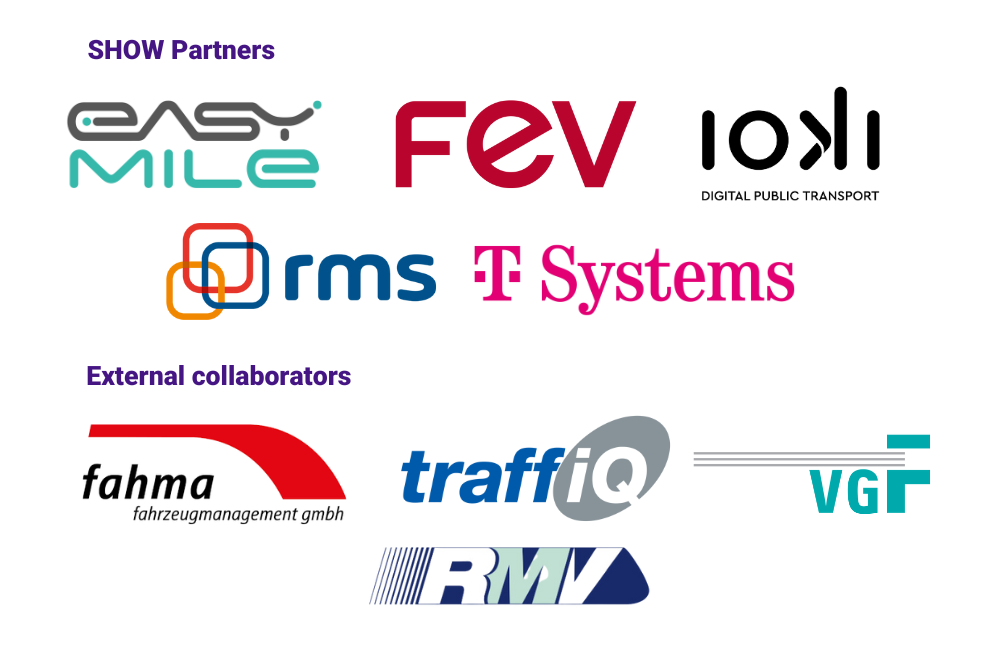Mega sites
GERMANY
Level 4/5 operation in complex scenarios & combined urban and peri-urban Environments
MONHEIM
AVs fully integrated into Public Transport since 2020
Vision
Driverless transportation will improve end-to-end transport services for our passengers in Monheim to optimize the ride with AVs as much as possible regarding speed, comfort and safety.
The Service
- Service fully integrated into PT
- Operates with a 10-minute interval from 9 am to 9 pm on 7 days per week (20-minute interval during ongoing constructions)
- Connection with other buses at the central bus station “Monheim Mitte”
- Free of charge for Monheim residents (“Monheim Pass”)
- The Standard PT rate applies to other passengers
- More than 50 trained Safety Operators in total
- More than 30 Safety Operators run AVs on a daily basis
- The control centre is in operation for both types of vehicles (regular buses and AVs)
- 2 Chief Operators (who can train Safety Operators)
- 3 Designers (who can deploy new routes on private grounds)
- Specially trained mechanics at a workshop for maintenance
Fleet
5 * Easy Mile Gen 2, SAE Level: 3
Target passengers
Residents (mainly elderly) and tourists
The Route
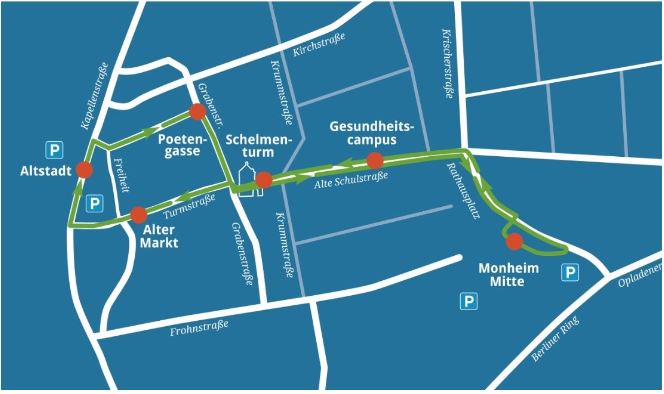
Main route: 1.7 km long, serves 8 stops, started on Nov 12th 2022
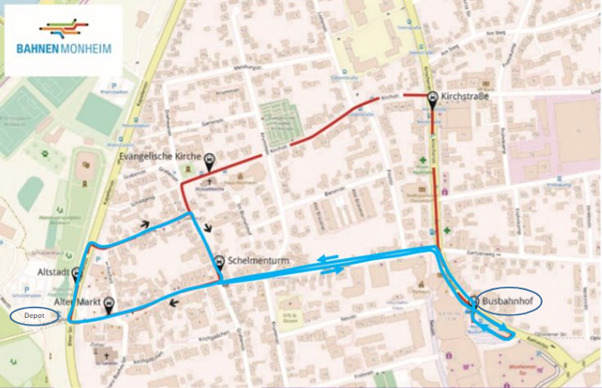
Alternative route: 2.7 km long, serves 8 stops, during construction works (02/2020 until 12/2022 and 10/2024 until 5/2025) and events on main route
Key Feedback


Key Challenges & Recommendations
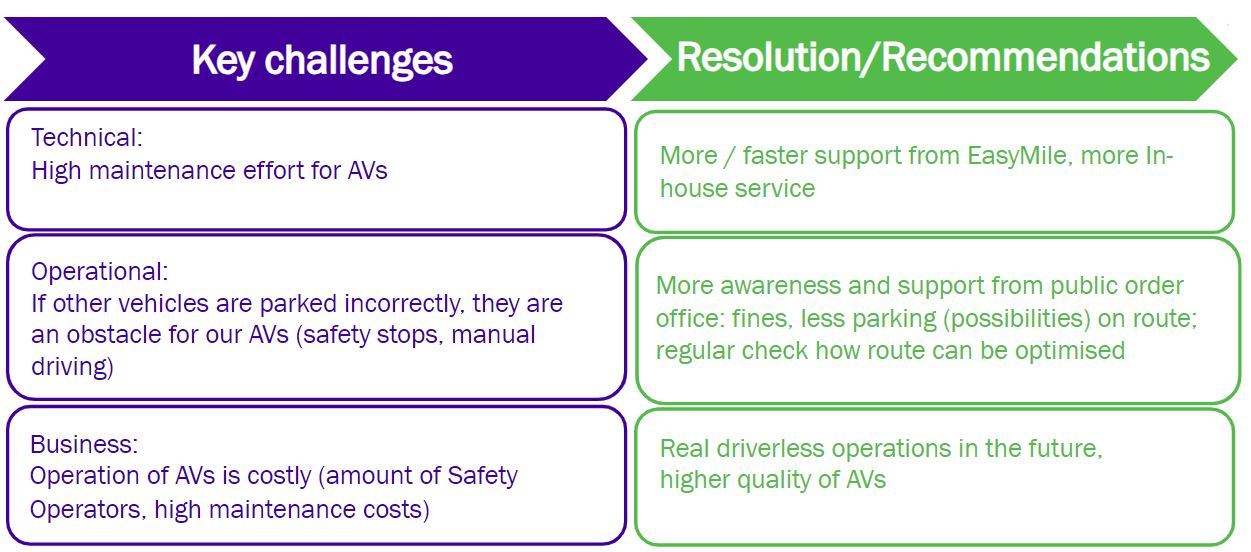
Use Cases
UC 1.1 Automated mobility in Cities under normal traffic & environmental conditions
UC 1.2 Automated mobility in Cities under complex traffic & environmental conditions
UC 1.3 Interfacing non automated vehicles and travellers (including VRUs)
UC 1.4 Energy sustainable automated mobility in Cities
UC 1.5 Actual integration to city TMC
UC 1.6 Mixed traffic flows; AVs and non-AVs mixed in the same traffic flows
UC 3.2 Big data / AI based added value services for Passengers mobility
UC 3.4 Automated services at bus stops
Local Ecosystem
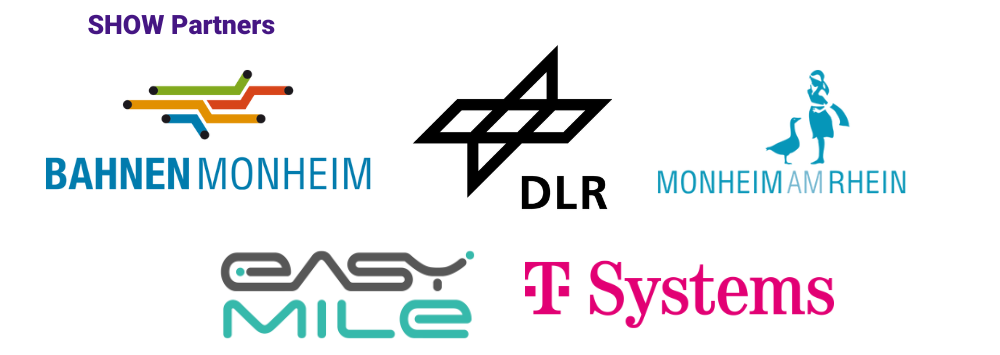
Legacy
Following the pilot’s success, operations will continue with a focus on advancing autonomous mobility. Participation in projects such as “Diversify CCAM” further supports these goals. Additionally, autonomous vehicle showcases are available for private events to promote individual events in other cities or at public transport operator premises.
KARLSRUHE
AVs are breaking free from the virtual rail
Vision
The Service
- FZI-Shuttles operated freely without virtual rail in PT
- On-demand offer (via app) for last mile within PT offer
- Cargo-Use-case as last-mile package delivery
- U-Shift provided transport service for visitors of the German federal garden show
- Free of charge for all passengers
Fleet
2 * modified EasyMile Gen2 , SAE Level: 2 (4)
1 * modified Audi Q5 SAE Level: 2 (4)
1 * DLR-U-Shift: automated operation supervision
Target Passengers
Residents and tourists
The Route
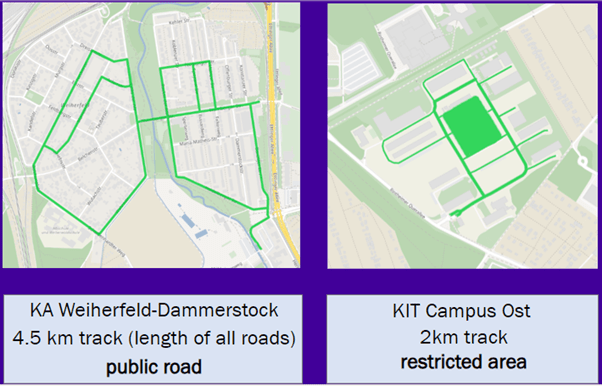
Key Feedback
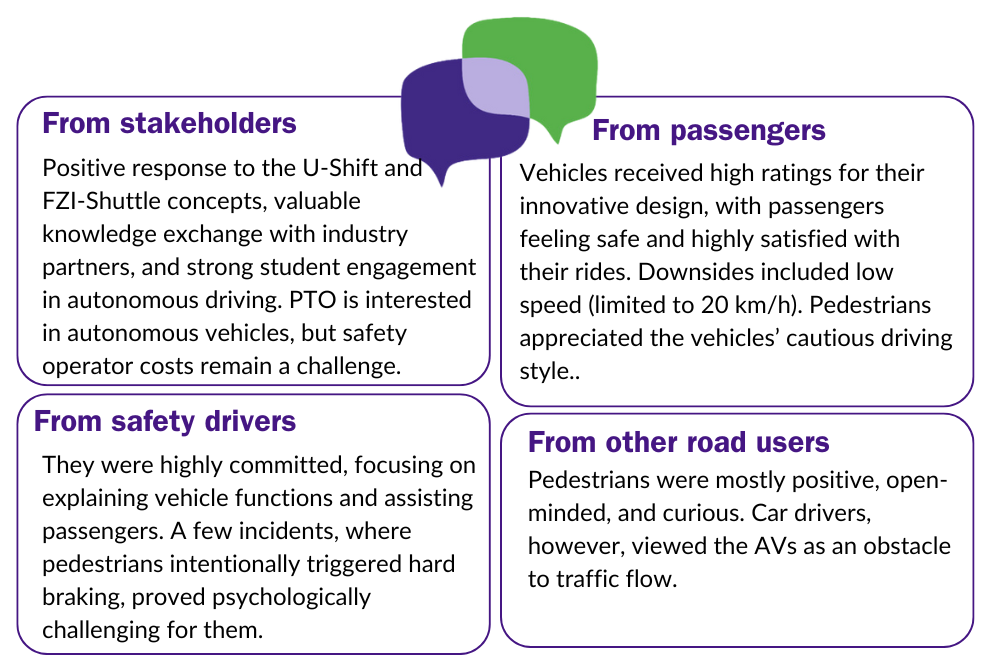
Key Challenges & Recommendations
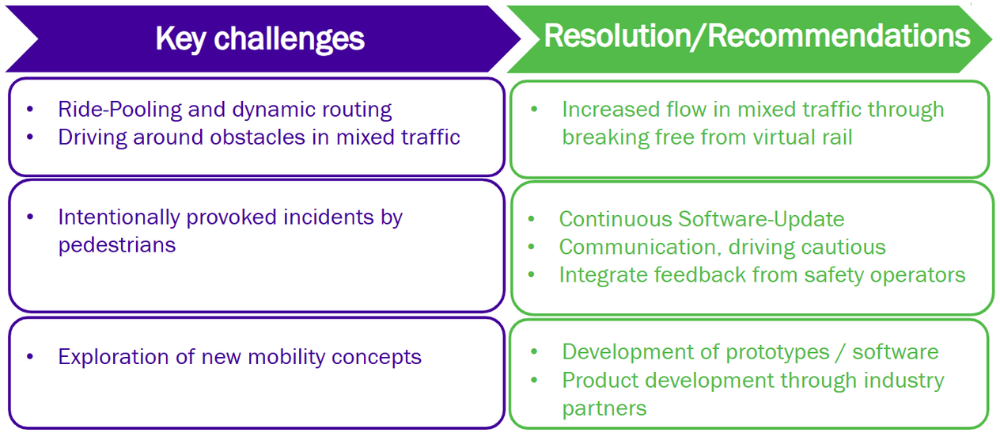
Use Cases
UC1.1 (normal)
UC1.2 (complex)
UC1.4 (energy sustainable)
UC1.7 (remote supervision)
UC1.9 (cargo platooning)
UC1.6 (mixed flows)
UC2.1 & UC2.2 (mixed spatial & temporal mobility)
Local Ecosystem
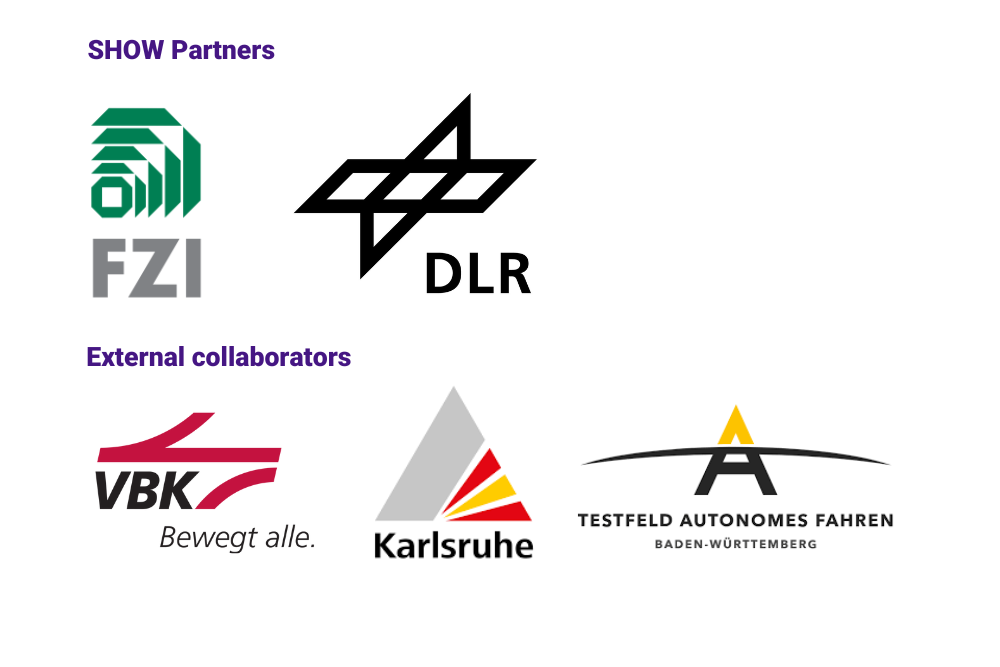
Legacy
Deploying the innovative vehicle concepts from DLR (U-Shift) and FZI within the SHOW project led to valuable insights for transferring research results into the real world with the goal of further adapting automated vehicles specifically designed for PT operations.
Development and research on these innovative vehicle concepts continue in various projects, and further applications in real-world environment are planned. Stakeholders, including the city and PT operators, are closely monitoring project results for potential future AV service implementations. Key research areas include teleoperation, smart infrastructure communication, fleet management, and multi-use vehicle development.
FRANKFURT
Automated On-Demand Service as a first-/last-mile feeder
Vision
The Service
- Free of charge
- Safety driver on board
- Booking via on-demand application (ad-hoc or in advance)
- AI based camera system and voice bot
Fleet
- Frankfurt: 2 EasyMile EZ10 Gen 3b, L4, electric
- Aachen: 2 Development Vehicles, L4 + followers
Target Passengers
- Frankfurt: Residents of the neighborhood
- Aachen: Students / FEV-colleagues
The Route
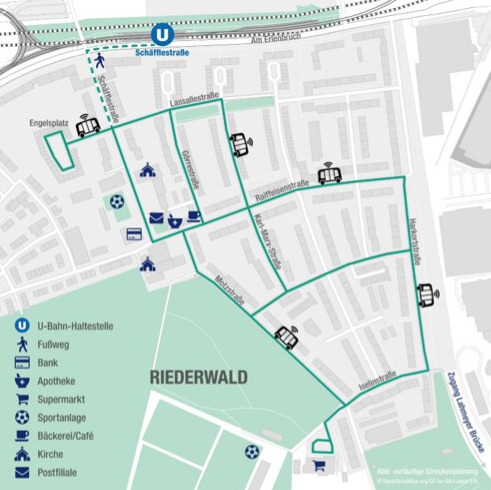
Key Feedback
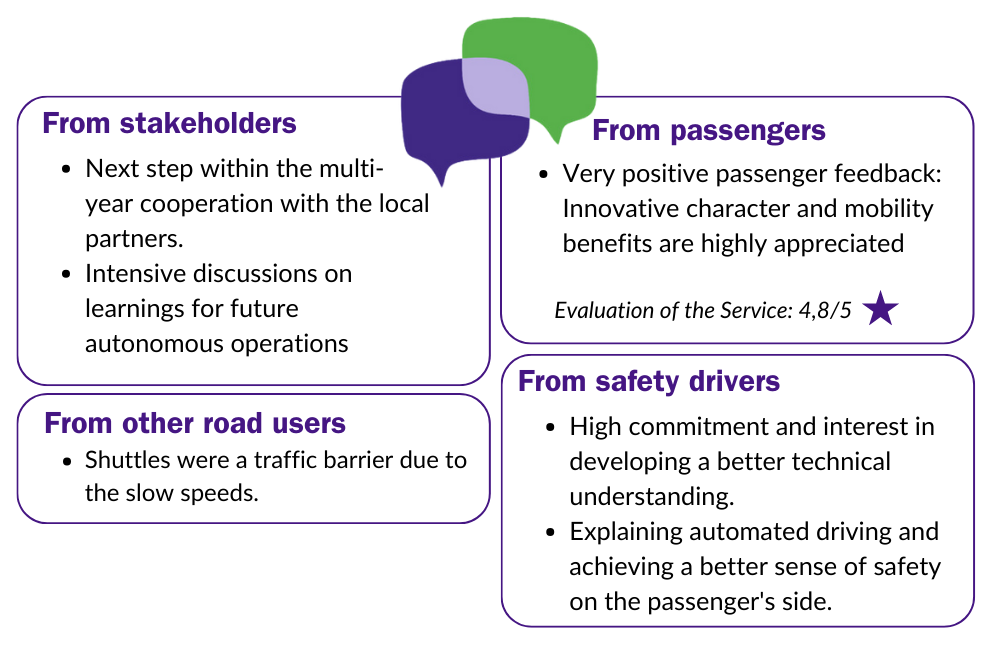
Key Challenges & Recommendations
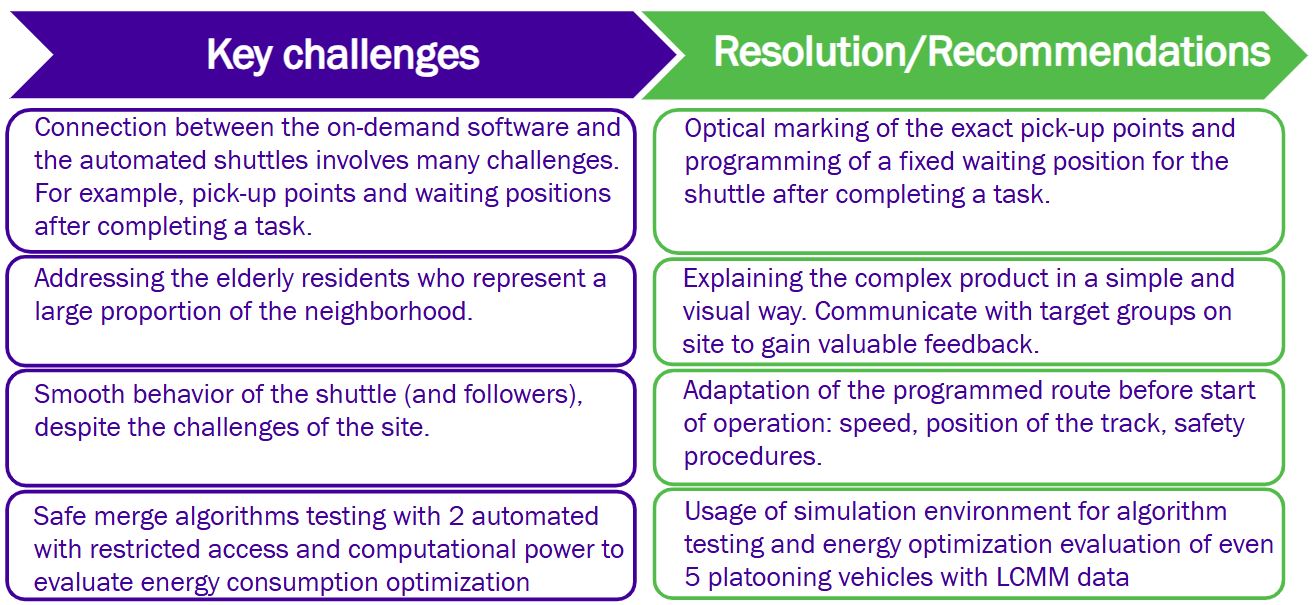
Use Cases
UC1.1 (normal traffic & environmental conditions)
UC1.4 (energy sustainable), UC1.6 (mixed traffic flows)
UC1.7 (connection to operation centre)
UC1.10 (autonomous transport chains)
UC3.1 (self-learning demand response)
UC3.2 (AI-based added value services)
UC3.4 (automated services at bus stops)
UC3.6 (COVID-SAFE Transport)
Local Ecosystem
